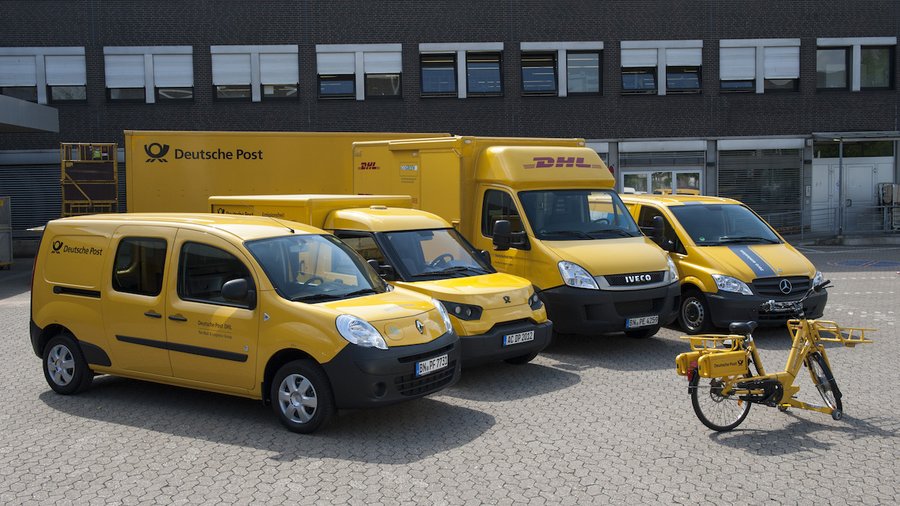VW 'annoyed beyond measure' DHL will produce its own electric delivery vans

Yet some would say the VW and other automakers have created this particular monster on its own.
VW chief executive Matthias Mueller tells Reuters that he is "annoyed beyond measure" that DHL will broaden production of its StreetScooter line of electric delivery vans. DHL has about 1,000 of the vehicles on the road, and is looking to make about 5,000 of them a year. DHL has a tailwind of sorts because electric vehicles only require about 10 percent of the manpower for assembly that conventional vehicles do because of the relative simplicity of an electric drivetrain.
As for Mueller's frustration, Volkswagen may be forced to look in the mirror to assign blame. DHL says its requests for vehicle makers to produce electric delivery vans were rejected, hence its decision to go it alone. Additionally, automakers began outsourcing parts en masse in order to reduce costs in the wake of the global economic meltdown during the last decade, so that, while automakers were producing about 45 percent of all vehicle parts during the 1980s, they now produce only about 20 percent while outsourcing the rest. With that in mind, DHL can use special software to communicate with as many as 80 suppliers at a time, while those suppliers are all the more versed in producing parts because of all of the outsourcing. For instance, Germany-based giant Bosch is making the StreetScooter's drivetrain and headlights.
The StreetScooter is built to last about 16 years, factoring in a robust 60 hours a week of typical usage. The most recent iteration of the model has 280 cubic feet of storage and can car as much as 2,200 pounds of cargo.
Related News
